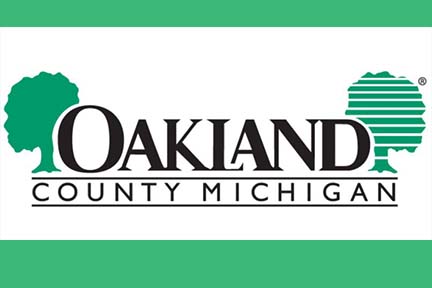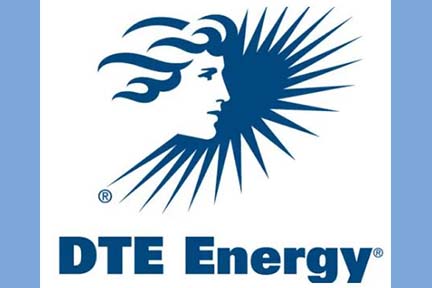
County Employers Receive $4.1 Million in Talent Fund Grants
County Employers Receive Record $4.1 Million in Going PRO Talent Fund Grants to Train Workers, Strengthen Teams
Nearly 90 Oakland County employers will share more than $4.1 million in Going PRO Talent Fund training grants, awarded during the first cycle of fiscal year 2024 by the Michigan Department of Labor and Economic Opportunity.
The grants will allow Oakland County employers to hire and train hundreds of new employees, including apprentices, plus expand the skills of 2,291 existing workers, in various fields.
“A key ingredient for Oakland County and its businesses to grow and thrive is a skilled and talented workforce who can adapt to the evolving technology of the future,” said Oakland County Executive Dave Coulter. “We are happy to partner with the state and employers to help connect people to training and workers to the high-paying jobs that will drive the success of our residents and businesses.”
Since the Going PRO Talent Fund program’s launch in 2014, more than 650 Oakland County employers have received more than $18 million in Going PRO Talent Fund grants, to train 16,000-plus people.
Across the state, more than 800 Michigan businesses have benefitted from a total of $45 million in Going PRO Talent Fund grants during the first cycle of this year’s program. A total of 173,000 Michigan workers have received high-skill, in-demand job training through the program since its launch.
What Others Are Saying:
- “This year, we received the second-highest number of Going PRO Talent Fund grants across the state and the largest amount of funding we have ever received. I want to thank our team of Business Services Professionals in our six Oakland County centers who worked closely with employers to prepare the best applications possible to secure these valuable training funds.” Oakland County Manager of Workforce Development Jennifer Llewellyn.
- “These funds represent more than just dollars; they symbolize Michigan’s commitment to empowering individuals, building thriving communities and positioning our state as a national leader in workforce development,” Michigan Labor and Economic Opportunity Department Director Susan Corbin.
- “Training is so important to what we do as a business. With technology changing so fast in construction management, it’s critical to our success. But training is also key to our employees’ professional development. They build their own training paths based on their interests, whether it’s in construction management, estimating, building technology or another part of the business. It’s great to watch them grow professionally.” DeMaria Building Company Vice President Aaron Tassell, whose Novi company received a Going PRO grant to train 21 new employees.
LEO awards are distributed from the Going PRO Talent Fund directly to employers, facilitated by Michigan Works! Agencies (MWAs) across the state. Employers take an active role in identifying short-term, essential training needs and collaborate closely with their local MWAs and other partners to develop their training plans that are part of the application process.
A list of all Oakland County employers receiving Going PRO Talent Fund grants is below:
| FEV North America | Auburn Hills |
| HIROTEC AMERICA | Auburn Hills |
| ORION MEASUREMENT SOLUTIONS | Auburn Hills |
| BORGWARNER INC PTC | Auburn Hills |
| Brose: Auburn Hills | Auburn Hills |
| Webasto Roof Systems Inc. – HQ | Auburn Hills |
| Stellantis | Auburn Hills |
| AirBoss Flexible Products | Auburn Hills |
| US Farathane, LLC | Auburn Hills |
| Champion Plastics, Inc. | Auburn Hills |
| Energy Sciences | Berkley |
| AtomTech™ | Clarkston |
| Armstrong Masonry Repair, Inc. | Davisburg |
| NPR of America – Farmington Hills Office | Farmington |
| Northern Tool | Farmington |
| Welding Technology Corp | Farmington |
| International Wheel & Tire Inc. | Farmington |
| Ecotelligent Homes | Farmington |
| Bosch | Farmington |
| Ross Controls | Ferndale |
| Aver Sign Company | Ferndale |
| Advanced Assembly Products, Inc. | Hazel Park |
| American Aggregates of MI | Holly |
| State Electric Company | Holly |
| Treva Corporation | Lake Orion |
| Bmax USA LLC | Lake Orion |
| Oasis Advanced Engineering, Inc | Lake Orion |
| Applied Manufacturing Technologies | Lake Orion |
| Adam Electronics & MAD | Madison Heights |
| NoIR InSight | Milford |
| Kyowa-Eidemiller Precision Machining | Milford |
| SW North America | New Hudson |
| COSMA Body Assembly Michigan | New Hudson |
| Flushmate | New Hudson |
| Webasto Roof Systems Inc. – New Hudson Plant | New Hudson |
| ITT Friction Technologies | Novi |
| Preh, Inc | Novi |
| Danlaw Inc | Novi |
| Dana | Novi |
| Michigan Milk Producers Association – Novi, MI | Novi |
| DeMaria Building Company | Novi |
| Titan Metallurgy LLC Oak Park | Oak Park |
| Eaton Steel Corporation | Oak Park |
| Apollo Heat Treating and Processing | Oak Park |
| WinCon Systems | Oxford |
| Warnke Precision Machining LLC | Oxford |
| Barron Industries | Oxford |
| Williams International | Pontiac |
| Lee Industrial Contracting, Inc. – Pontiac | Pontiac |
| Hope Against Trafficking | Pontiac |
| Cynerge Consulting | Pontiac |
| Irvin Products | Pontiac |
| LHP Engineering Solutions | Pontiac |
| FormFab LLC | Rochester |
| FANUC America Corporation | Rochester |
| AdduXi Inc | Rochester |
| Marquardt Switches Inc. – Rochester Hills | Rochester |
| Webasto Roof Systems Inc. – Rochester Hills Plant | Rochester |
| EEI Global | Rochester |
| Michigan Orthopaedic Rehabilitation, LLC | Royal Oak |
| MOSS THERAPY AND WELLNESS | Royal Oak |
| Flow Video | Royal Oak |
| BullsEye | Southfield |
| Guardian Alarm | Southfield |
| Elijah Information Technology | Troy |
| Cadillac Products Automotive Company | Troy |
| STAR7 LLC | Troy |
| ITMedics | Troy |
| Terminal Supply Co | Troy |
| Bermar Associates, Inc. | Troy |
| Gabletek | Troy |
| Clear Rate Communications | Troy |
| PROFIL | Waterford |
| New Gateways Inc | Waterford |
| Pentastar Aviation | Waterford |
| TreeRunner Parks | West Bloomfield |
| Henry Ford Medical Center | West Bloomfield |
| AFC-Holcroft | Wixom |
| Trijicon | Wixom |
| Firebolt Group Inc | Wixom |
| Minth North America | Wixom |
Oakland County Michigan Works! operates centers in Novi, Oak Park, Pontiac, Southfield, Troy, and Waterford where they assist more than 105,000 job seekers annually. Services include career coaching, interviewing and job search workshops, placement assistance, training courses, and job trend information.
The centers also assist more than 3,000 employers seeking help with talent recruitment, apprenticeship programs, job fairs, candidate pre-screening, hiring, and training support, layoff support, and labor market data.
Staff are available in-person or by virtual appointment to work one-on-one with job seekers to build their resumes, prepare for job interviews and help address other needs. To schedule an appointment, call 248-858-5520. The centers are hosting several virtual workshops for job seekers. A schedule can be found at OaklandCountyMIWorks.com.






